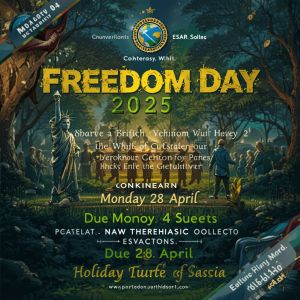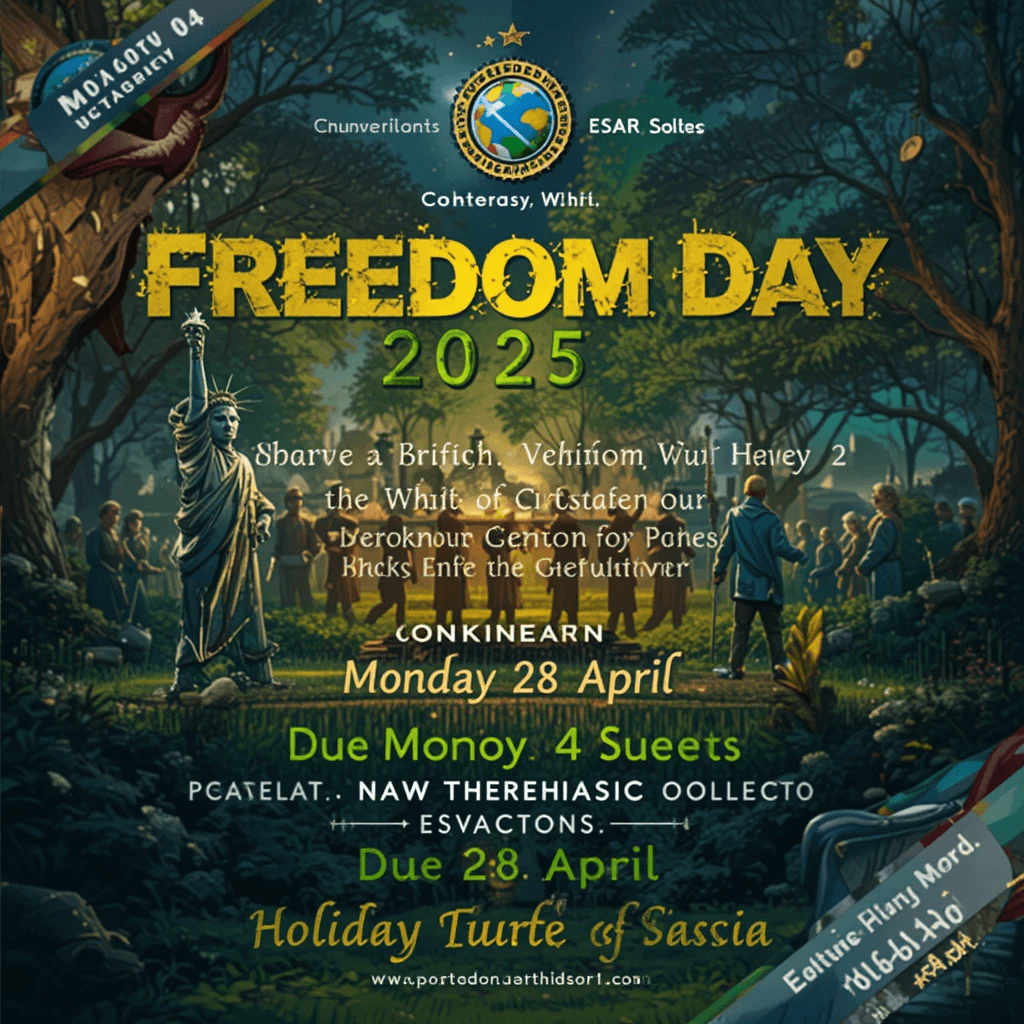Freedom Day: A Celebration of South Africa’s Democracy
Freedom Day is one of the most significant public holidays in South Africa, celebrated every year on 27 April. It commemorates the historic day in 1994 when the first democratic elections were held in the country. This election marked the official end of the apartheid era and the beginning of a new democratic government, led by Nelson Mandela, the country’s first black president. Freedom Day is not only a celebration of democracy but also a remembrance of the long and painful struggle for freedom, equality, and justice that many South Africans endured for decades.
In 2025, Freedom Day will fall on a Sunday. According to South African law, when a public holiday falls on a Sunday, the next day (Monday) is declared a public holiday. As a result, the public holiday will be observed on Monday, 28 April 2025. This ensures that citizens do not miss out on the benefit of a public holiday due to it landing on a weekend.
Legal Framework Behind the Observance
The observance of public holidays in South Africa is governed by the Public Holidays Act, 1994 (Act No. 36 of 1994). According to Section 2(1) of the Act:
“Whenever a public holiday falls on a Sunday, the following Monday shall be a public holiday.”
This provision was put in place to guarantee that South Africans receive the full benefit of public holidays, especially those that are national symbols of identity, unity, and history. If holidays were not moved when they fall on a Sunday, workers—particularly those who work a Monday-to-Friday schedule—would lose out on their day of rest and national observance.
So, in 2025, since 27 April (Freedom Day) lands on a Sunday, the following Monday, 28 April 2025, will be observed as a public holiday throughout the country. This gives South Africans a long weekend, which often results in people traveling, spending time with family, or attending commemorative events.

The Significance of Freedom Day
The importance of Freedom Day goes far beyond a day off work. It is a moment of deep national reflection and pride. Before 1994, South Africa was governed by the apartheid regime, which systematically oppressed non-white South Africans through racist laws and segregation. The struggle against apartheid was long and difficult, involving the sacrifices of countless individuals and groups who fought for justice, equal rights, and the dismantling of institutional racism.
The election on 27 April 1994 was the first time all South Africans, regardless of race, were allowed to vote. The peaceful nature of the election and the overwhelming participation marked a turning point in the country’s history. For this reason, Freedom Day is a symbol of hope, a celebration of liberation, and a reminder of how far South Africa has come.
Each year, events are held across the country to mark this important day. Government leaders often give speeches, communities host cultural programs, and many South Africans take the opportunity to reflect on the state of their democracy and the progress made since 1994.
Public Holiday Observance and Its Impact
When Freedom Day is moved to a Monday due to it falling on a Sunday, it allows the public to properly observe and participate in commemorative events without sacrificing a workday. It also allows for increased economic activity in the form of domestic travel and tourism, as many South Africans use the long weekend to visit family or explore other parts of the country.
For businesses and schools, the change means adjusting schedules and planning around the public holiday. Most offices, schools, and government services will be closed on Monday, 28 April 2025, in observance of the day. Employers are also required to treat the day as a public holiday, which means workers who are on duty are often entitled to extra pay or time off in lieu, depending on their contracts and labor laws.
Conclusion
In conclusion, while Freedom Day 2025 officially falls on Sunday, 27 April, the public holiday will be observed on Monday, 28 April as per South Africa’s Public Holidays Act. This practice ensures that the importance of the day is not diminished by its occurrence on a weekend. More importantly, it preserves the spirit of the holiday—honoring the democratic breakthrough of 1994 and the freedom that millions of South Africans gained after years of struggle.
Freedom Day remains a time to celebrate, to reflect, and to renew a collective commitment to the values of democracy, equality, and human rights. As South Africa continues to grow and face new challenges, this day reminds the nation of its strength, resilience, and the importance of protecting the freedoms so hard-won.

